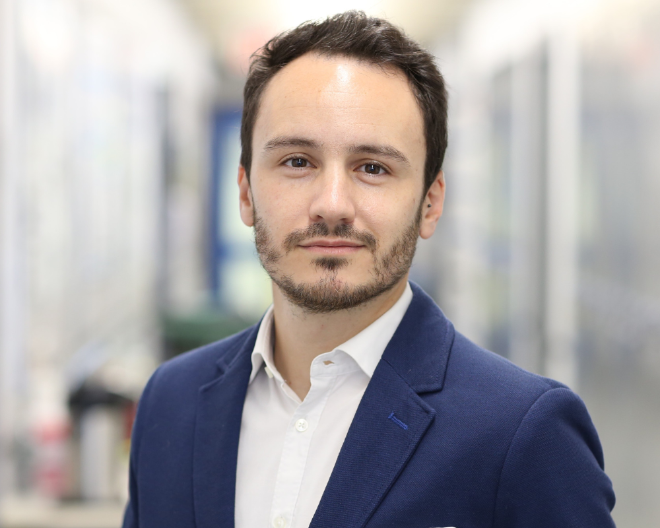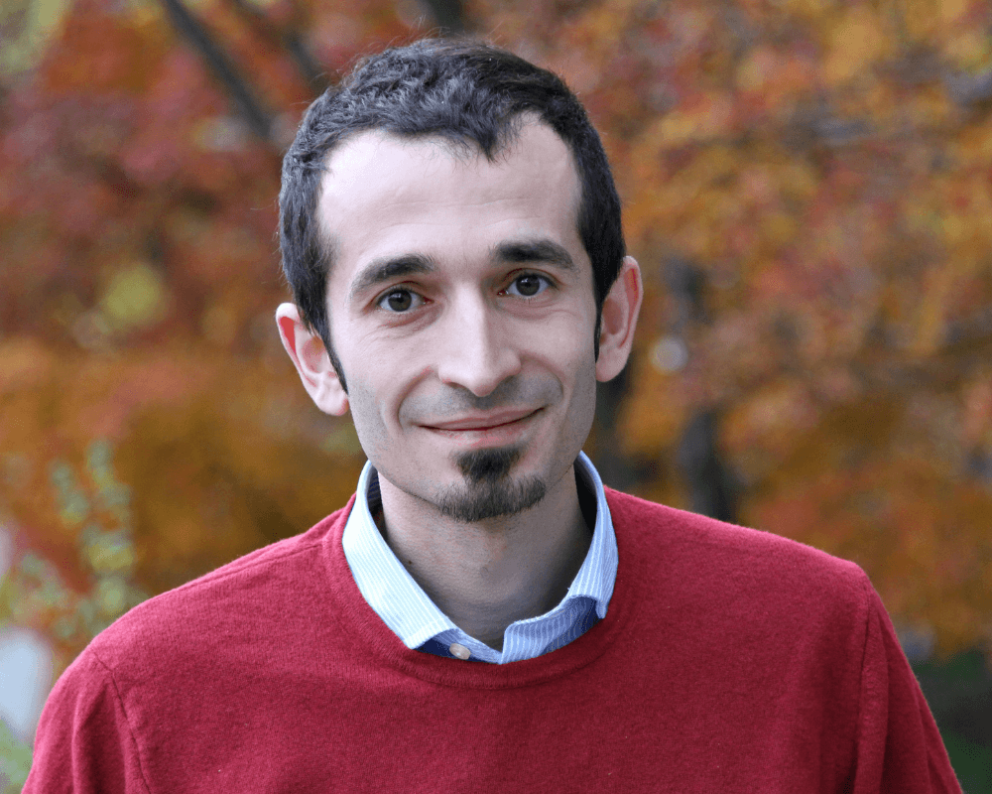
The European Research Council (ERC), the European Union body that funds outstanding researchers who intend to conduct frontier research in EU member states or associated countries, has awarded a Consolidator Grant to Dr. Donato Inverso, researcher in General Pathology at UniSR and Group Leader of the Vascular Pathobiology Unit at IRCCS Ospedale San Raffaele.
ERC supports high-risk, high-impact scientific research projects led by researchers with internationally distinguished track records. Projects are funded on the basis of spontaneous project ideas submitted by researchers, in any field of science evaluated on the sole criterion of scientific excellence.
The Consolidator Grant (CoG) funding is intended for researchers of any nationality with 7-12 years of experience gained after obtaining a PhD and with a very promising scientific record. It is aimed at researchers who have the goal of consolidating their independence with their own research group (new or newly established) and continuing to develop a successful career in Europe. The grant received by Dr. Inverso, worth 1.8 million euros for 5 years, will help his research group in the study of chronic liver diseases induced by a particularly high-calorie diet, from fatty liver to liver cancer (hepatocarcinoma).
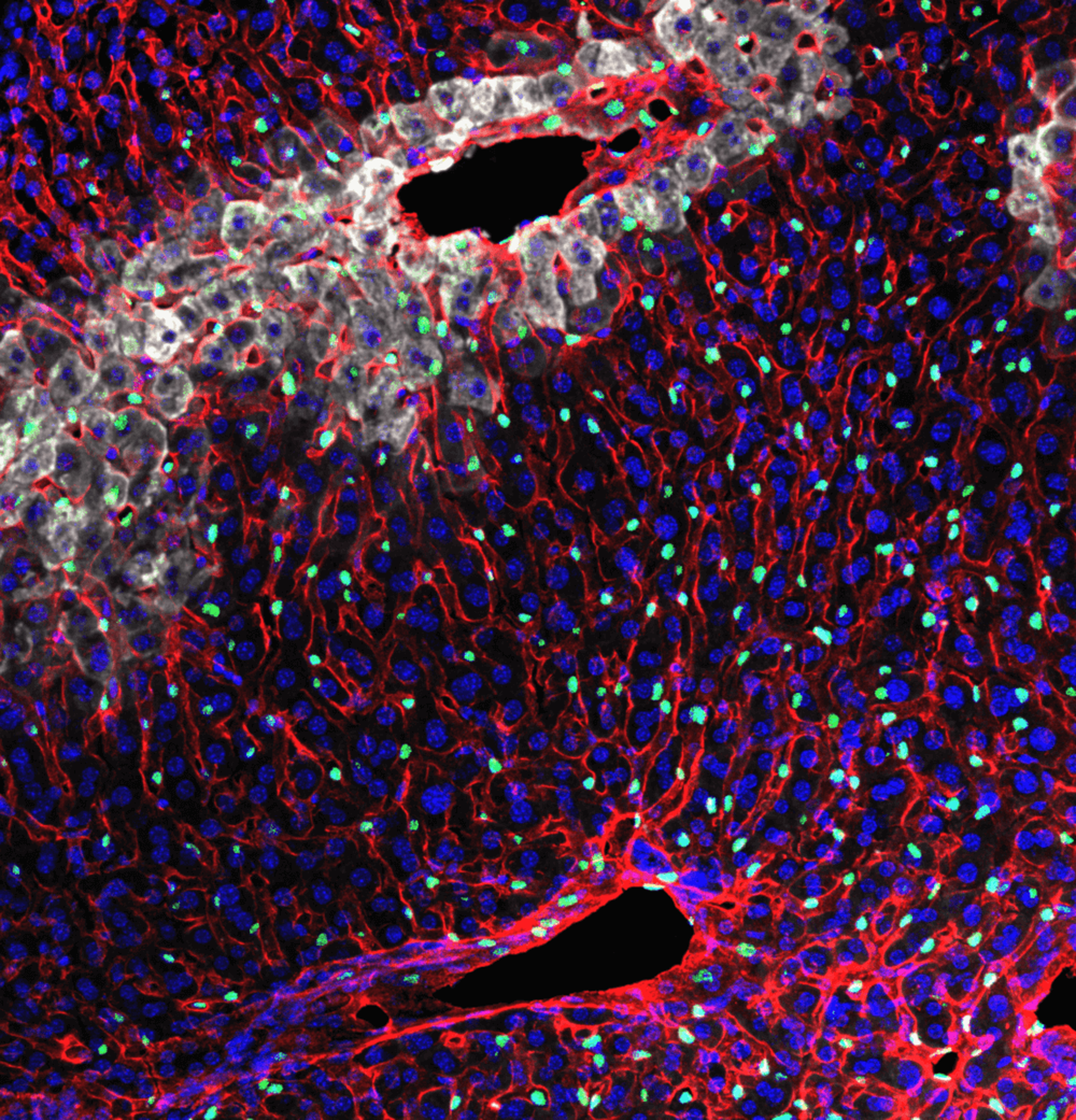
The project
The newly ERC-funded project aims to study the role of liver vessels during the development of non-alcoholic steatohepatitis (NASH). Specifically, Dr. Inverso and other researchers in recent years have highlighted how liver functions are determined by a particular structure of blood vessels, which divide the entire organ into many microscopic units called hepatic lobules. Within these lobules, liver cells (hepatocytes) perform different functions depending on their distance from the vessels.
Dr. Inverso explains:
During prolonged liver damage, this intricate structure undergoes progressive alteration leading to increasingly reduced liver function. Among the earliest causes of chronic liver disease is damage induced by hypercaloric diet, which overloads the liver and causes progressive disease including fatty liver, hepatitis, fibrosis, cirrhosis, to hepatocarcinoma. The latest estimates are that 25% of the world's population is affected by different stages of the disease; thus, it is one of the most prevalent disease conditions of our time.
Over the next 5 years we will use innovative methods, partly developed by our group, with the ambition of mapping for the first time and with a morpho-functional resolution never achieved before all the vascular events that follow one another in the course of the disease, from the earliest and asymptomatic stages up to the onset of liver cancer.
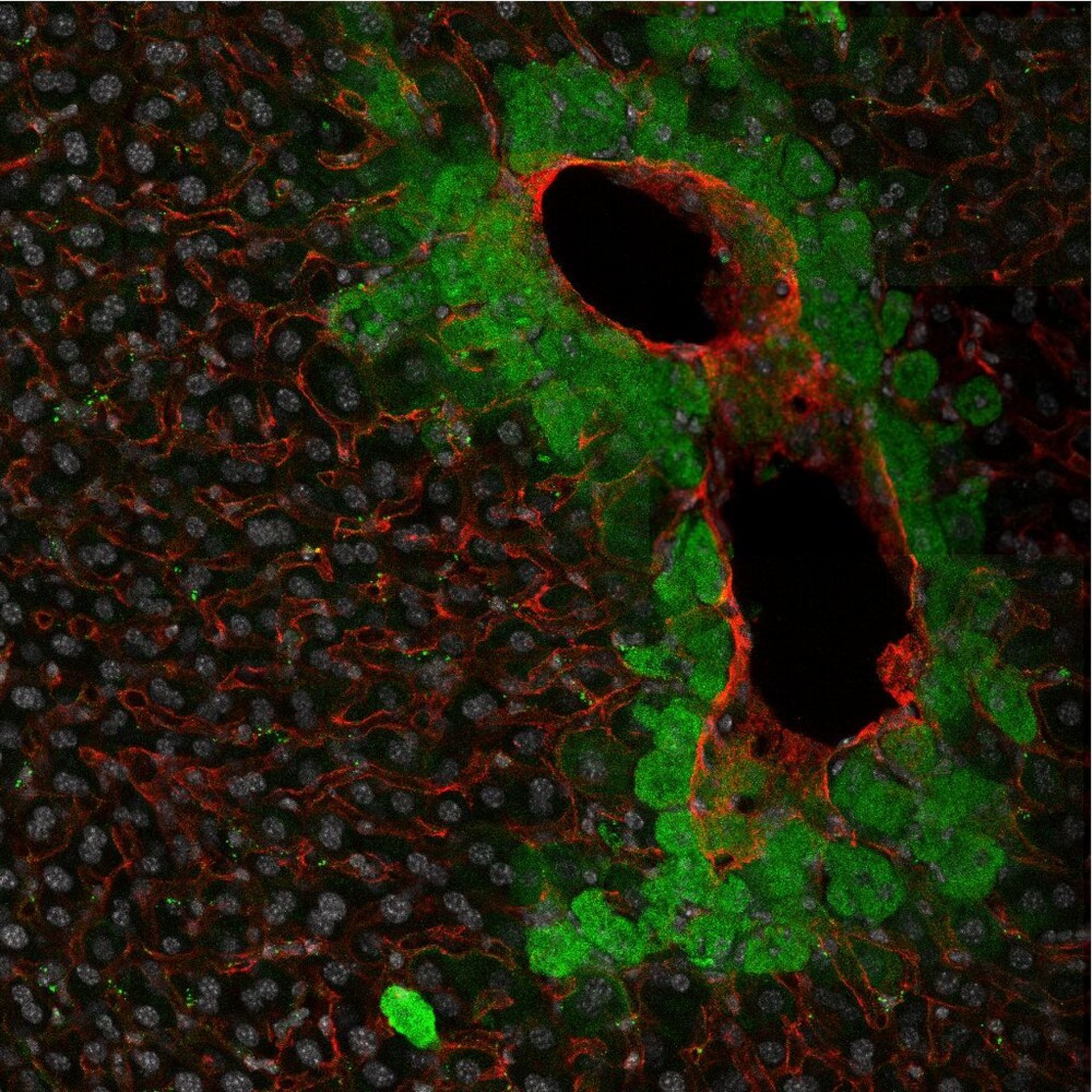
The goal
The team's approach focuses on the role of vessels and the interaction between vessels and the immune system and will achieve 3 specific goals:
- map the anatomical distribution and function of thousands of molecules early in the disease, with the aim of identifying signs of liver dysfunction related to lobule structure, a parameter that is currently not yet considered in diagnostic criteria;
- identify vascular targets for the treatment/prevention of NASH and subsequent progression to more severe forms. Currently, the bulk of therapies focus on metabolic and inflammatory aspects. However, the structure of the hepatic lobule is primarily regulated by blood vessels: the ambition is to identify specific therapeutic targets in liver vessels, opening up new hitherto unexplored treatment perspectives;
- focus on the therapy of liver cancer (hepatocarcinoma) for which a therapy directed at tumor vessels is already approved but for which the precise mechanisms of operation are not yet known.
Donato Inverso
Donato Inverso is a researcher specialized in the study of the immune and vascular system during severe chronic liver diseases, such as viral hepatitis, cirrhosis and hepatocarcinoma.
Born in 1985, he graduated in veterinary medicine in 2009 from the University Federico II of Naples and in 2015 he obtained his doctorate in Immunology from UniSR, under the supervision of Prof. Matteo Iannacone, professor of General Pathology UniSR and director of the Division of Immunology, Transplantation and Infectious Diseases at IRCCS Ospedale San Raffaele. He then moved to the German Cancer Research Center (DKFZ) as a postdoctoral fellow in the group led by Prof. Hellmut Augustin, where for seven years he studied the role of the vascular system in driving liver regeneration and the development of several chronic liver diseases induced by improper nutrition.
He has been awarded several prestigious awards, including those from international bodies such as EMBO (2016), Marie Skłodowska-Curie Action (2017), DKFZ (2018) and Accademia dei Lincei (2021).
In 2022, Dr. Inverso was awarded an AIRC-StartUP grant worth €1 million, with which he returned to Italy at UniSR to lead the new Vascular Pathobiology Unit.
For more information about the research work of Dr. Inverso and his team: https://inversolab.org/
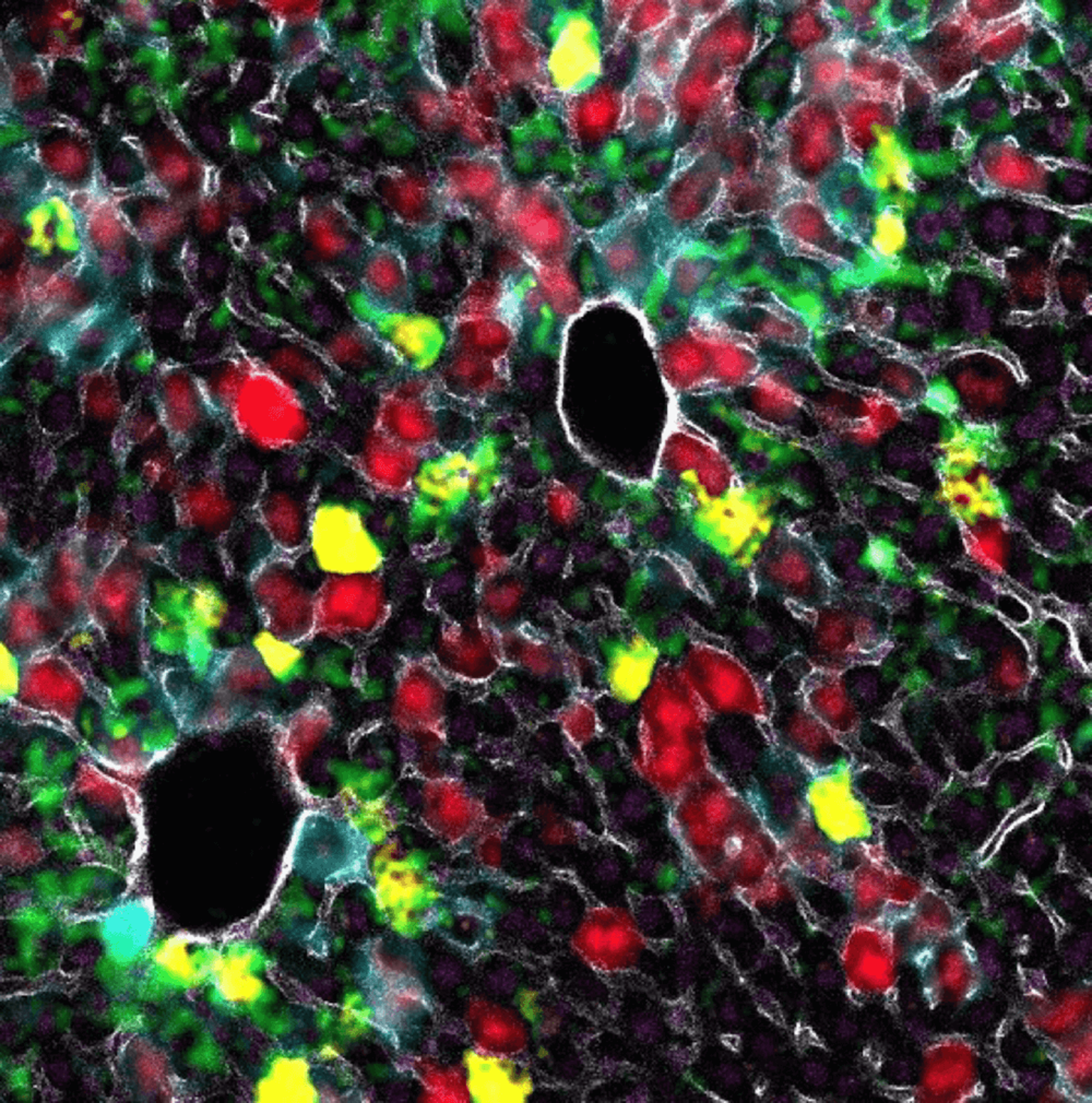
You might be interested in
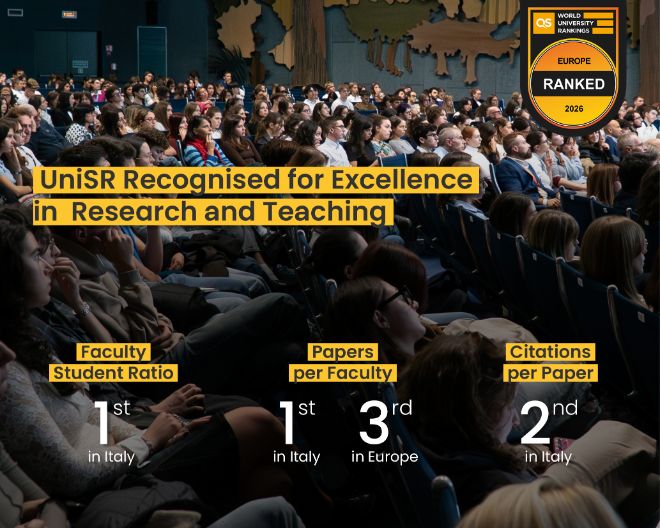
UniSR ranked 1st in Italy for Research and Teaching
/resolutions/res-c660x528/Veschetti_Cariplo_P.-Aeruginosa_UniSR-(1).jpg)
Uncovering the hidden role of bacterial microRNAs in chronic respiratory diseases

A New Approach to Enhance Immunotherapy in Multiple Myeloma
